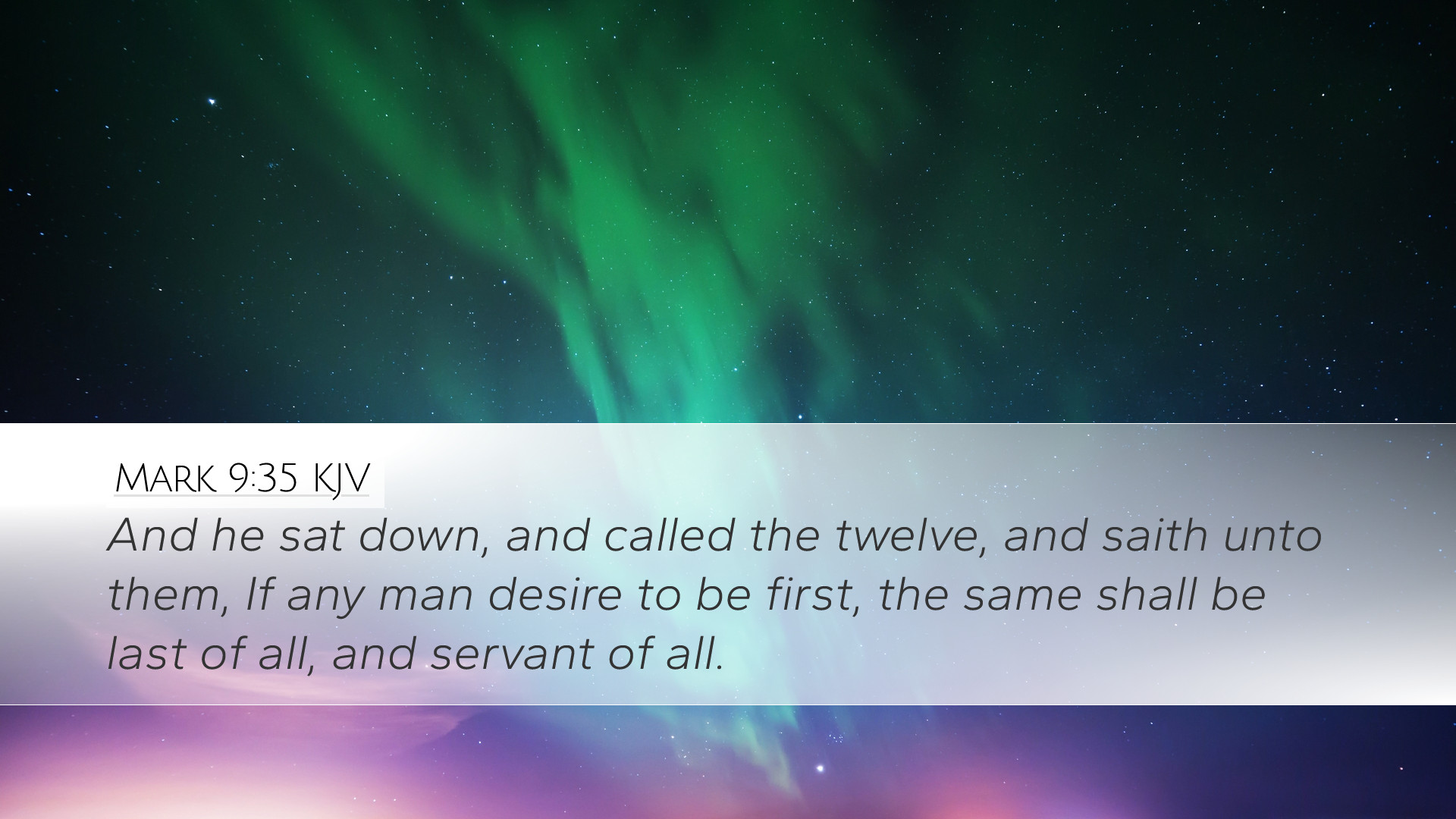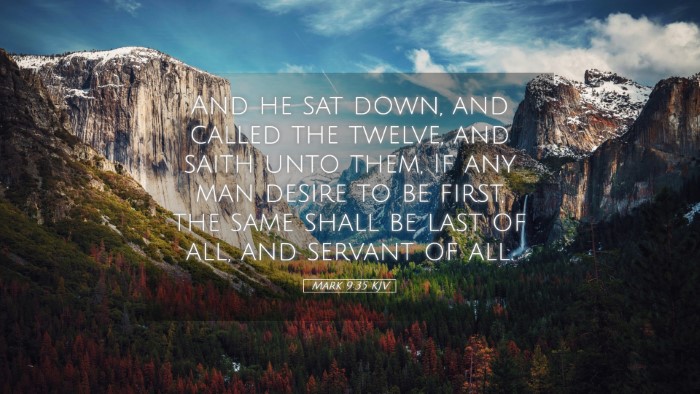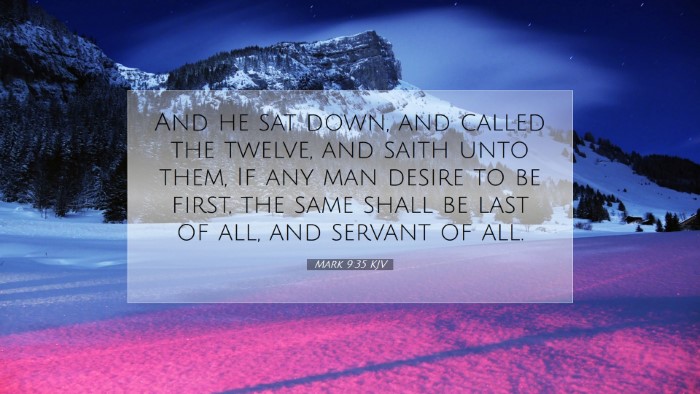Old Testament
Genesis Exodus Leviticus Numbers Deuteronomy Joshua Judges Ruth 1 Samuel 2 Samuel 1 Kings 2 Kings 1 Chronicles 2 Chronicles Ezra Nehemiah Esther Job Psalms Proverbs Ecclesiastes Song of Solomon Isaiah Jeremiah Lamentations Ezekiel Daniel Hosea Joel Amos Obadiah Jonah Micah Nahum Habakkuk Zephaniah Haggai Zechariah MalachiVerse
Mark 9:1 Mark 9:2 Mark 9:3 Mark 9:4 Mark 9:5 Mark 9:6 Mark 9:7 Mark 9:8 Mark 9:9 Mark 9:10 Mark 9:11 Mark 9:12 Mark 9:13 Mark 9:14 Mark 9:15 Mark 9:16 Mark 9:17 Mark 9:18 Mark 9:19 Mark 9:20 Mark 9:21 Mark 9:22 Mark 9:23 Mark 9:24 Mark 9:25 Mark 9:26 Mark 9:27 Mark 9:28 Mark 9:29 Mark 9:30 Mark 9:31 Mark 9:32 Mark 9:33 Mark 9:34 Mark 9:35 Mark 9:36 Mark 9:37 Mark 9:38 Mark 9:39 Mark 9:40 Mark 9:41 Mark 9:42 Mark 9:43 Mark 9:44 Mark 9:45 Mark 9:46 Mark 9:47 Mark 9:48 Mark 9:49 Mark 9:50

